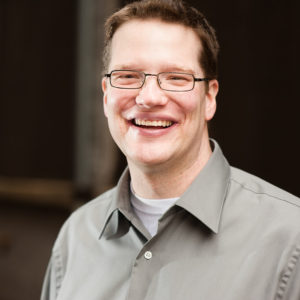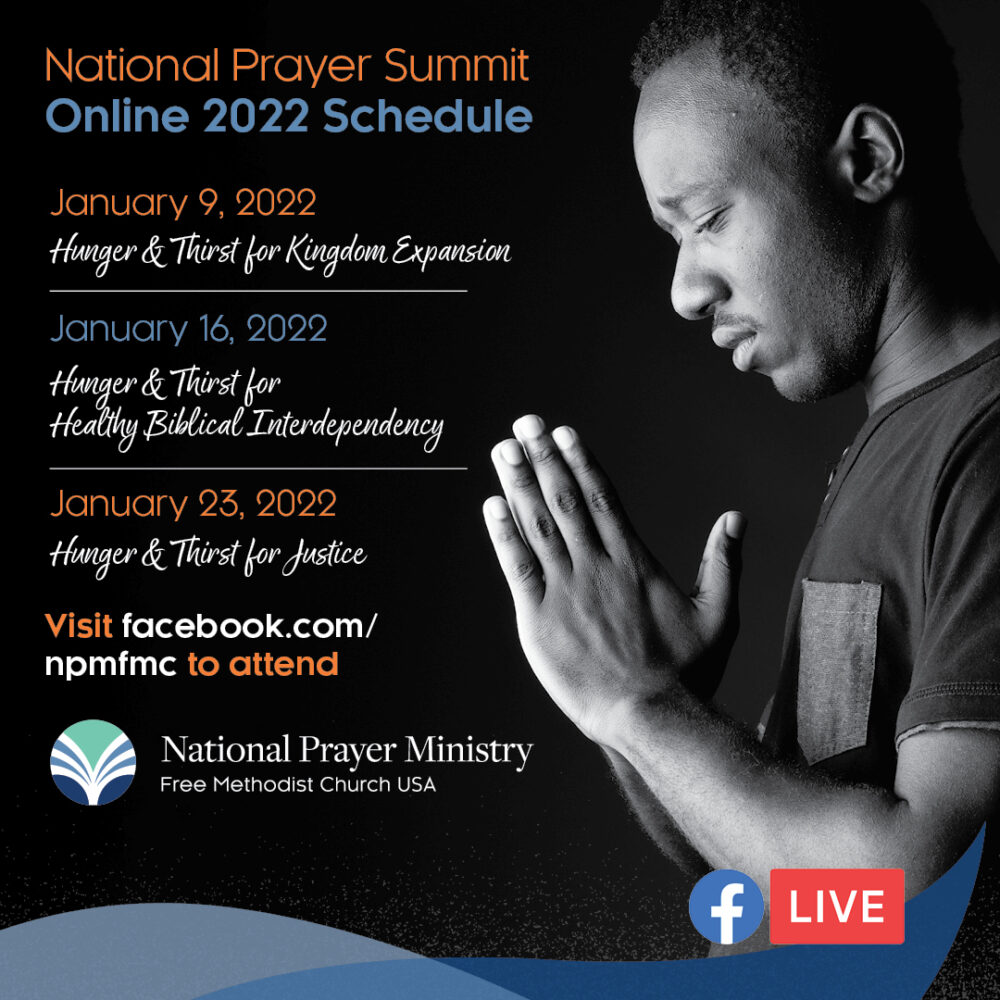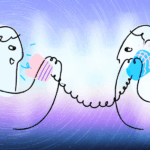
Jeff Finley
Light + Life Executive Editor
Jeff Finley is this magazine’s executive editor. He joined the Light+Life team in 2011 after a dozen years of reporting and editing for Sun-Times Media. He is a member of John Wesley Free Methodist Church where his wife, Jen, serves as the lead pastor.
by Jeff Finley
The National Prayer Summit Online 2022 began Jan. 9 with key insights from two couples — Bishop Keith and Pam Cowart and Rev. Drs. Larry and Deb Walkemeyer — who have lived out The Free Methodist Way value of Christ-compelled multiplication.
Hours earlier, the Walkemeyers officially concluded three decades of leading Light & Life Christian Fellowship in Long Beach, California, with an installation service for new Lead Pastors Sean Fenner and Joel Silva. Under the Walkemeyers’ leadership, Light & Life became a multiplying church that planted 20 other churches. Now they have entered a new phase of ministry as the Free Methodist Church USA’s strategic catalysts for Christ-compelled multiplication and members of the denomination’s Executive Leadership Team, and they joined the Cowarts — who planted Christ Community Church in Columbus, Georgia — as the summit kicked off with a focus on “Hunger and Thirst for Kingdom Expansion.”
“Multiplication absolutely demands spiritual hunger and thirst and prayer. Those must come together,” said Larry Walkemeyer, who added that we need to be clear what we mean by multiplication. “We want to multiply Christ, not ourselves, not our pastor, not our church, not our denomination. We want to multiply Christ through those things, and people who are hungry for the person of Christ — for who He is — then can multiply the bread of life, which is Christ. If we’re not hungry for Him but we’re just hungry for some results, some programs, some statistics, we’re going to miss that.”
Many people think multiplication happens because of strategy, but Larry Walkemeyer described strategy as “dry bones.” He advised Christians to “put flesh and spirit breath into those dry bones, and that only happens through the power of prayer when we’re spiritually hungry and thirsty for more of Christ and that many more would know Christ.”
A Life of Multiplication
Deb Walkemeyer discussed multiplication as a lifestyle that is countercultural to our world, which emphasizes putting self first.
“Living a life of multiplication means that I am living with a sense that I am a disciple who’s going to be making a disciple who makes a disciple, and that ongoing multiplying disciples means it’s not about me,” she said. “It’s always putting someone else on my shoulders to help them to be all that they can be, and because of that I need to be on my knees, because my flesh wants to woo me back to self. My flesh wants me to shift my priorities away from that.”
Our culture pressures people to become social media influencers who mainly promote themselves. In contrast, she said, multiplication is “not about platform, but it’s about being a multiplying disciple-maker, so being on my knees reminds me constantly that without God’s Spirit empowering me, I really can do nothing. It’s the total dependency on Jesus that helps me.”
Instead of focusing on our own vision to bring about love, justice and hope, she said we need to be prayerfully “on mission with God doing what He’s called me to do with Him in the world.”
Stirring Up New Things
Bishop Keith Cowart said that as the bishops were writing The Free Methodist Way, they considered the denomination’s history while also wrestling with God’s desire for today’s church. While reflecting on the church’s heritage, they pondered Isaiah 43 in which God said, “Forget the former things; do not dwell on the past. See, I am doing a new thing” (v.18–19).
“We didn’t feel like God was asking us to throw out the past, but we did feel like God was saying, ‘What do you want Me to do now?’” he said. “And when it comes to multiplication, it was a part of our early story. From our birth in 1860 until 1900, we grew rapidly.”
Free Methodism has continued to grow rapidly around the world, but growth in the United States has stalled. As a result, Bishop Cowart said, Christ-compelled multiplication “is a value we aspire to. We must become a multiplying movement again. If we don’t, we’re going to be plateaued and will begin to die.”
He said his morning devotions recently included 2 Timothy 2:1–2, a key multiplication passage. Paul instructs Timothy to “be strong in the grace that is in Christ Jesus. And the things you have heard me say in the presence of many witnesses entrust to reliable people who will also be qualified to teach others.”
_
“What do you do when you’re just not so thirsty? What do you do when you just know ‘I wish I was more thirsty and hungry, but I’m just not’?”
– Bishop Cowart
“What’s interesting to me is that before and after that passage, Paul is really trying to stir up something in Timothy,” said Bishop Cowart, who also shared observations from his own spiritual life. “I know that spiritual hunger and thirst — and that leading me to greater prayer — is going to lead to greater effectiveness and fruitfulness. But what do you do when you’re just not so thirsty? What do you do when you just know ‘I wish I was more thirsty and hungry, but I’m just not’?”
The previous chapter includes a call to “fan into flame the gift of God, which is in you” (2 Timothy 1:6). Bishop Cowart said this verse is “a reminder that the nature of fire is to go out,” and then Paul reminds Timothy of his identity using the images of a soldier (2 Timothy 2:3–4), an athlete (2:5) and a farmer (2:6). For example, the soldier is not to get “entangled in civilian affairs.”
“Quite frankly, one of the great challenges is we can get distracted by a million things — internet, social media, TV,” he said. “Every part of our life can distract us from that central focus of prayer and moving deeply into the presence of the Lord.”
The athlete plays according to the rules, and Cowart said “discipline is meant to keep hunger and thirst steady all the time.” He described the hardworking farmer receiving the first fruits of the harvest as “a reminder of the power of travailing prayer. We are living in such a fast-paced, quick-fix kind of society; it is a reminder that God responds most powerfully when His people come after Him and stay after Him, pursuing Him for great lengths of time together in travailing prayer. That’s when good things begin to happen.”
Listening to God
Pam Cowart noted that prayer is not limited to one form.
“There are so many forms of prayer that are going to lead us toward this greater hunger and thirst and that will multiply the fruit of the Spirit within our own hearts,” she said. As a result, we then have “that river of life — flowing out of us into the world — that’s going to go to those places that are hungry and thirsty.”
She reflected on the evening’s key passage: “Come, all you who are thirsty, come to the waters; and you who have no money, come, buy and eat! Come, buy wine and milk without money and without cost. Why spend money on what is not bread, and your labor on what does not satisfy? Listen, listen to me, and eat what is good, and you will delight in the richest of fare” (Isaiah 55:1–2).
“In the ESV, it says, ‘Listen diligently to me,’” she said before moving to the verse following the passage. “Down into verse 3, it says, ‘Incline your ear, and come to me,’ and that form of listening prayer is so powerful to know the heart of God.”
We must spend time in listening prayer, she said, because God “speaks with words of knowledge, words of wisdom. He speaks with prophetic words to us and through us.”
She noted that listening to God includes studying the Bible: “We should come with our ear inclined as we come to His Word to say, ‘There is something fresh for the now, for my life to multiply, for my church to multiply, for the churches in my city to multiply.’”
Next Steps
National Prayer Ministry Co-Director Brett Heintzman asked about steps that churches can take if they want to become part of a multiplication movement.
“I really truly believe that every pastor, every leader, every person within a church really needs to lead from their knees,” said Deb Walkemeyer, who reiterated that social media can shift the attention from Jesus to self. “We have got to begin to influence from our knees. Churches need to just start getting on your knees together and ask God, ‘Where are you at work in our specific community? Because I want to go there and partner with you, Lord, rather than try to come up with the next cool missional expression. Instead, God, where are you leading us?’”
_
“We knew we couldn’t multiply anything if the Holy Spirit didn’t empower us, lead us, guide us, and make us willing to surrender and sacrifice.”
– Larry Walkemeyer
She emphasized that leaders need to be still and wait for God to speak, and her husband shared that their church has a longtime practice of starting the year with 21 days of prayer and fasting.
“Jesus in Matthew 9 said, ‘Ask the Lord of the harvest to send out workers,’ and most churches are not really praying that earnestly — fasting and praying for that — and then asking, ‘Lord, is it me? Do You want me to go? Who from our church do You want to go?’” said Larry Walkemeyer, who added that many churches fail to ask God whom He wants to send because they are reluctant to send their best volunteers elsewhere. “Every one of our church plants has been preceded by a time of fasting and prayer and the Lord speaking and directing. … We knew we couldn’t multiply anything if the Holy Spirit didn’t empower us, lead us, guide us, and make us willing to surrender and sacrifice.”
Bishop Cowart noted the power of corporate prayer — gathering to pray rather than asking church members to pray individually.
“It is coming together in a state of listening prayer to really say, ‘Lord, we want to hear Your heart. We want to let You direct us. We want to let You give us Your Word for what needs to happen here,’” he said. “If we are each one filled with the Holy Spirit, then when we come together, the presence of Christ is multiplied by the number of every person that’s there, and there is power in that multiplied effect of corporate prayer.”
Continuing the Summit
Click here for the full conversation on “Hunger and Thirst for Kingdom Expansion” followed by a time of corporate prayer in which National Prayer Ministry team members join the Cowarts and Walkemeyers.
The summit continued Jan. 16 with a focus on “Hunger and Thirst for Healthy Biblical Interdependency” and special guests Gerry and Jan Coates and Bishop Linda Adams. Gerry Coates is the denomination’s strategic catalyst for global collaboration and a member of the FMCUSA Executive Leadership Team. Jan Coates is the communications content coordinator for Free Methodist World Missions.
The Jan. 23 session will focus on “Hunger and Thirst for Justice” with special guests Fraser and Jo Anne Venter and Bishop Matt Whitehead. Fraser Venter is the denomination’s strategic catalyst for love-driven justice and a member of the FMCUSA Executive Leadership Team. Jo Anne Venter is the director of business development for a national company.
Each night of the summit begins at 7 p.m. Eastern/6 p.m. Central/5 p.m. Mountain/4 p.m. Pacific time. For more information, visit the National Prayer Ministry’s website or Facebook page. +


Jeff Finley
Light + Life Executive Editor
Jeff Finley is this magazine’s executive editor. He joined the Light+Life team in 2011 after a dozen years of reporting and editing for Sun-Times Media. He is a member of John Wesley Free Methodist Church where his wife, Jen, serves as the lead pastor.









